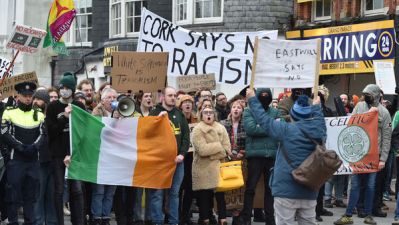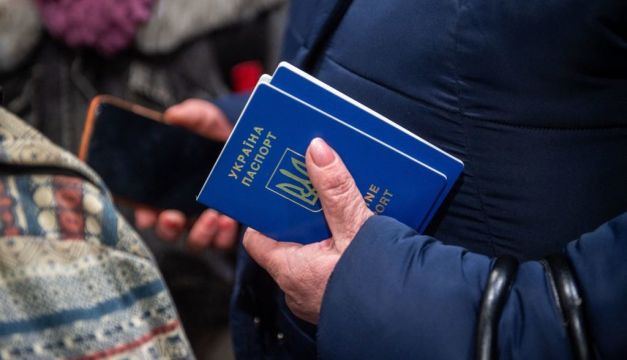Cross-Border travel has posed challenges to migrants’ integration on the island of Ireland and migrants have raised concerns about an increase in racial profiling post-Brexit, research has found.
The findings are contained in a new study, carried out by the Economic and Social Research Institute (ESRI) in partnership with the Taoiseach’s Shared Island Unit, which looked at migrants’ experiences on the island, including on cross-Border travel since Brexit.
The ESRI said that for non-EU nationals, there were restrictions on cross-Border travel prior to Brexit, and that many of the legal requirements for cross-Border travel remain similar to before Brexit.
In a consultation held in October with 32 migrant group representatives, it was indicated that some migrants are “effectively excluded” from taking part in events that require them to cross the Border.
These include education and sports, holidays, religious events, and family gatherings that require cross-Border travel.
Stakeholders at the consultation raised immigration checks as an issue, saying ethnic minority migrants are more likely to be checked while travelling across the Border.
It said that among the key points raised were concerns about racial profiling at Border checks, which results in “considerable fear and anxiety” among migrants.
“While the legal provisions for cross-Border travel after Brexit remain broadly similar to pre-Brexit, participants described heightened profiling on the basis of skin colour,” the research found.
“Without routine passport checks, the consultation raised the issue that some migrants are checked on the basis of their skin colour, sometimes also their clothes and language/accent.”
A reported lack of clarity around rights has led to feelings of fear and uncertainty among migrant groups, which it said in turn, can negatively impact on integration on the island.
The ESRI research also found that in Ireland, 35 per cent of migrants are Irish citizens, and in Northern Ireland, 17 per cent are British citizens.
Foreign-born population
Ireland and Northern Ireland have seen an increase in migrants arriving in recent decades, with 20 per cent of Ireland’s working-age population born abroad compared to 9 per cent of Northern Ireland, both mostly in Europe.
In both jurisdictions, most migrant groups are highly skilled and more likely to have third-level qualifications than the native-born population, though the skills profile of migrants is generally higher in Ireland than in Northern Ireland.
A higher proportion of migrants in both jurisdictions work in professional or managerial jobs than non-migrants, though Eastern Europeans in both jurisdictions are much less likely to be in professional managerial jobs.
In Ireland, there was little difference in either academic achievement scores or wellbeing at age 15 between migrant-origin children and their Irish-origin peers.
In the North, first generation migrant-origin children have considerably lower achievement scores in English reading and mathematics than their Northern Irish- or UK-origin peers.
Second generation migrant-origin children in Northern Ireland have similar achievement scores but have lower wellbeing than young people of Northern Irish or UK origin.
In 2017/2018, attitudes to migrants are more positive in Ireland than in Northern Ireland.
These differences in attitudes appear to be mostly explained by people in Ireland being more likely to have migrants in their social networks, being more optimistic about the future, and being more likely to believe their voice is heard in politics than people in Northern Ireland.
The report’s co-author Frances McGinnity said that despite migrants’ “substantial contribution” to the economy and society in both Ireland and Northern Ireland, they can also face challenges with work and cross-Norder travel.

“Some of these challenges appear greater in Northern Ireland, such as facing more negative attitudes about migration or in the achievement of the children of migrants in school.
“Differences in attitudes appear to be mostly explained by people in Ireland being more likely to have migrants in their social networks, being more optimistic about the future, and more likely to believe their voice is heard in politics than people in Northern Ireland.”
The report includes data from a consultation event with 32 participants from migrant representative groups and other stakeholders in Ireland and Northern Ireland in October 2022. It also uses data from the Labour Force Survey, the Programme for International Student Assessment and Eurobarometer data from 2017/2018.







